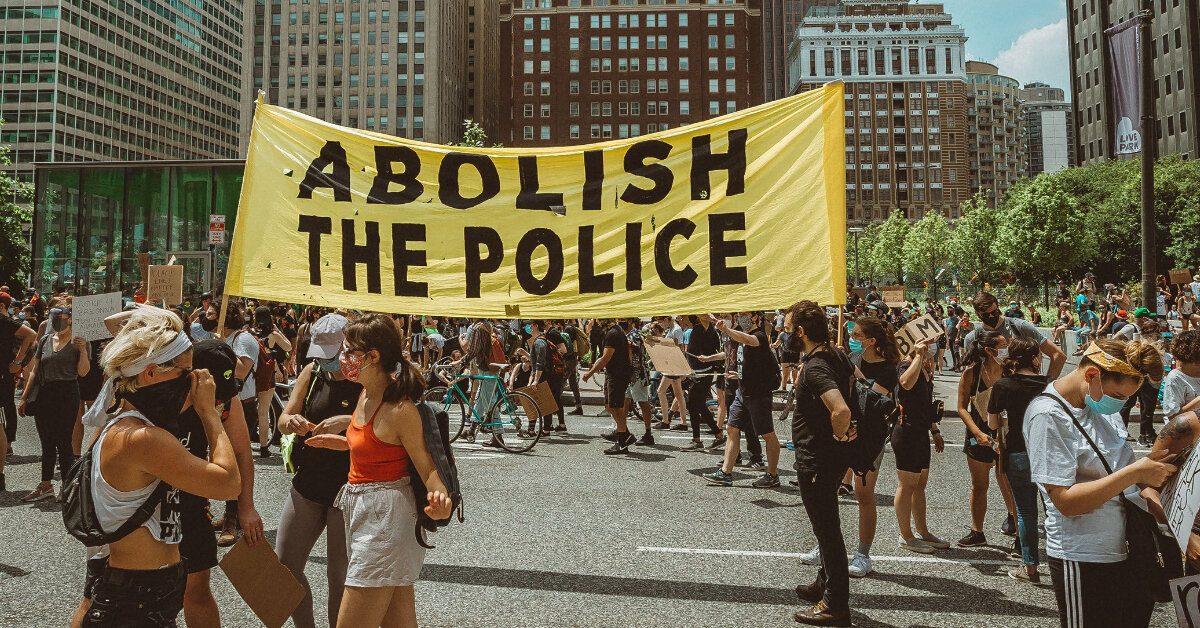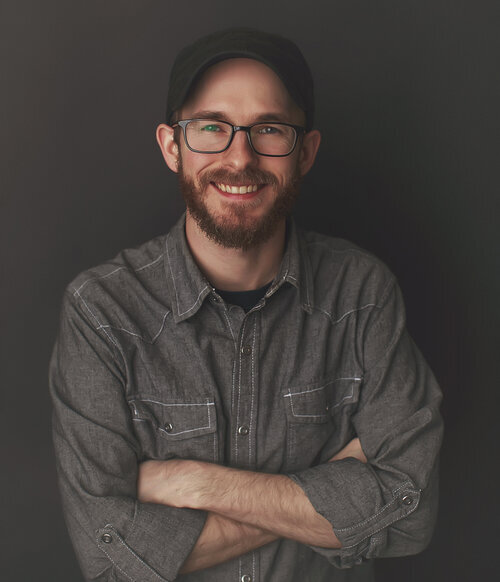
Editor’s note: This post originally appeared on davidwilber.me. Tabernacle of David considers this ministry trustworthy and Biblically sound.

Author: David Wilber
I’ve been researching Critical Theory, which fuels the ideology of many modern “social justice” movements (e.g., BLM), and I’ve found that it is anti-Gospel mind poison. The Gospel is all about reconciliation, healing, and justice; Critical Theory is divisive by design and results in only hate, violence, and injustice.
Sadly, many Christians are getting caught up in movements and ideas rooted in Critical Theory, whether they know it or not. They’re unaware of how these things conflict with the Gospel and how embracing them hinders real justice. I hope this article helps you recognize the ideas and rhetoric grown out of Critical Theory, which has gained a lot of influence in the culture over the past couple of decades (even among evangelicals[1]).
What is Critical Theory?
Critical Theory developed out of Karl Marx’s perspective on power. It applies Marx’s theories about power dynamics more broadly, beyond class, to group identities based on race, gender, sexual orientation, etc. According to Critical Theory, everyone is divided into one of two categories: “the oppressor” or “the oppressed.” Their group identity determines which category they belong to. As Dr. Neil Shenvi explains:
Critical theory is a broad area of knowledge that originated with the Frankfurt School in the 1930s and has expanded and evolved dramatically since then. It has spawned entire disciplines such as Critical Race Theory, Critical Pedagogy, and Queer Theory and is highly influential within the social justice movement. Contemporary critical theory views reality through the lens of power, dividing people into oppressed groups and oppressor groups along various axes like race, class, gender, sexual orientation, physical ability and age.[2]
Those whose identity group is deemed to be oppressed (e.g., black people, LGBTQ, women) are victims of societal values and norms established and maintained by the oppressors (e.g., white people, Christians). That is, members of oppressed groups are not victimized through overt discrimination but through “the ability of dominant groups to impose their norms, values, and expectations on society as a whole, relegating other groups to subordinate positions.”[3]
According to this worldview, the oppressed have a level of moral authority, gained through their “lived experience,” that members of oppressor groups cannot attain because their privilege blinds them. Consequently, “members of oppressed groups have special access to truth.”[4] Their perspective is considered more valuable than the views of members belonging to oppressor groups. This is why you’ll often hear feminists proclaim that a man is not allowed to have an opinion about abortion, or BLM activists will argue that a white person’s opinion on issues like police brutality should be dismissed.
Moreover, on Critical Theory, one’s moral authority is measured by the degree to which they are “oppressed” per their group identities. This is where the concept of intersectionality comes into play. As Joseph Backholm explains:
Intersectionality seeks to measure someone’s level of oppression based on how these group identities intersect in someone’s life. For example, a black man is less oppressed than a black woman, who is less oppressed than a black lesbian. In critical theory, the degree to which you are oppressed determines your level of moral authority. The more categories of oppression someone identifies with, the more moral authority they have. As a result, the experience and perspective of a gay, black, woman is more valuable than the experience and perspective of a straight white man, regardless of what they have to say. In the same way, the more oppressed someone is, the less moral responsibility they have for their actions.[5]
According to Critical Theory, the greatest virtue is to work toward freedom from all forms of oppression. This includes becoming aware of these power dynamics and standing in solidarity with the oppressed (becoming “woke”). It also includes working to dismantle everything in society considered “normal,” because society’s very structure is why the oppressed are oppressed. Any attempt to oppose this societal revolution is simply an attempt by the oppressors to maintain their power.
This is why the BLM website, for example, states that part of its agenda is to “disrupt the Western-prescribed nuclear family structure.”[6] That seems like a random and unrelated goal for a group dedicated to the cause of justice for black people—that is, until you realize that BLM is a Marxist movement[7] built upon Critical Theory. To groups like BLM, the nuclear family is a form of oppression that has been imposed upon society so that oppressors can maintain power. (This is also an example of how Critical Theory hinders real justice, as “disrupting” the nuclear family actually would harm black communities.)
Why Critical Theory is incompatible with Christianity and destructive
“But God tells us to oppose injustice and help the oppressed!” Yes, and we should. But there are two approaches to doing this: there is the Gospel, and then there is Critical Theory. These are competing worldviews, and they result in different outcomes, one positive and the other negative. Let’s compare.
First, Christianity and Critical Theory differ in regard to how we discover truth. Christianity affirms that a truth claim is established by reason, logic, evidence, and revelation (the Scriptures). In contrast to this, Critical Theory focuses not on a claim’s truthfulness but upon the identity group to which the claimant belongs. Because Critical Theory views everything according to an “Oppressor vs. Oppressed” dichotomy, the primary question is not, “Is this claim true?” Instead, the questions are more along the lines of the following: “What incentives does this person have to make this claim? What social or political agenda motivates this statement? How does this statement function to preserve his power and privilege?”[8]
Thus, according to Critical Theory, objective evidence can be dismissed if a member of an oppressor group presents it. Why? Because it’s argued that they are merely trying to maintain their power, which is always their motivation for defending certain positions. (If members of oppressed groups defend positions held by oppressor groups, it’s only because they suffer from internalized oppression.) Additionally, subjective opinion can be accepted as truth if a member of an oppressed group presents it (“they are speaking their truth!”).
Of course, Critical Theory’s approach to truth is flawed. For instance, not every member of any particular identity group has the same experiences. So the idea that a member of a certain identity group has special access to truth by virtue of their lived experience is simply wrong. Moreover, experiences are not perfect guides to truth. A good example of this would be religious experience—does a Mormon’s personal spiritual experience give them special access to religious truth that cannot be challenged? Of course not.
Not only that, but Critical Theory’s approach to truth also undermines the cause of justice. Take police brutality, for example. Groups like BLM claim that the police force itself is a racist institution that needs to be abolished to free black people from oppression. The problem is that the evidence does not support this claim,[9] and acting on this false narrative only hurts black communities who depend on the police. The idea that the police force is a racist institution is overly simplistic and doesn’t account for all the facts. The solution is not to defund or abolish the police but to invest in the police force so that officers can have better training and resources to serve their communities.
Real justice is based on truth, by definition. Since Critical Theory’s approach to truth is flawed, it fails to provide helpful solutions to society’s problems. It does not provide a proper basis upon which to pursue real justice.
Second, Christianity and Critical Theory differ in regard to how they view humanity, humanity’s problem, and the solution to the problem. Christianity teaches that all mankind is made in God’s image. Moreover, we all sin, and we all need salvation, which is found only in Messiah. In these ways, all humanity is equal before God. As Shenvi writes, “These doctrines of human solidarity are radically subversive to racism, sexism, and classism, but also to critical theory. And for exactly the same reason.”[10] In contrast, the very foundation of Critical Theory depends on groups of people being ontologically unequal and in opposition to each other.
Because Critical Theory has a flawed view of humanity, it likewise has a flawed view of sin. In Critical Theory, the only “sin” is oppression. Thus, only oppressors are guilty of sin. This sets a double standard of morality, depending on one’s identity group. For example, this is why racist stereotypes and derogatory comments against white people seem to be perfectly acceptable in the culture because, according to Critical Theorists, white people are incapable of experiencing racism directed toward them.[11] Not surprisingly, Critical Theory’s flawed view of humanity and sin leads to a flawed view of salvation. Salvation is not found in surrendering to Messiah and being forgiven and transformed, “but in social liberation here and now. Their hope is only through activism.”[12]
This fundamental defect in Critical Theory renders it not only incompatible with Christianity but also ineffective in providing a real solution to man’s biggest problem—sin. Only in Messiah can man truly be redeemed and transformed to pursue justice and righteousness in society. A recent real life example of this is Ken Parker, who marched in Charlottesville as a white nationalist in 2017 but then was baptized by a black pastor a year later. Now he helps others get out of hate groups.[13] Only God can deliver us from our greatest oppressor—ourselves. And indeed, the hope that Christians have extends beyond this world into the world to come, where God will set everything right and establish true justice for all.
In conclusion, Critical Theory has a flawed view of truth, humanity, sin, and salvation. The logical implications of Critical Theory lead to only inequality and injustice. Because of this, every modern social justice movement built on Critical Theory has made things worse, not better. Sadly it is difficult to critique the views held by Critical Theorists because they argue that anyone who disagrees with them is just trying to maintain their power (the ultimate appeal to motive fallacy). Nevertheless, I hope this article helps you recognize the flaws in Critical Theory so you won’t buy into this anti-Gospel mind poison that has influenced many in our culture.
[1] Neil Shenvi, “Critical Theory Within Evangelicalism,” www.shenviapologetics.com
[2] Neil Shenvi, “Intro to Critical Theory,” www.shenviapologetics.com
[3] Neil Shenvi and Pat Sawyer, “The Incompatibility of Critical Theory and Christianity,” www.thegospelcoalition.org
[4] Ibid.
[5] Joseph Backholm, “Critical Theory is Biblical,” www.whatwouldyousay.org
[6] Black Lives Matter, “What We Believe,” www.blacklivesmatter.com
[7] Adam Ford, “Video surfaces of Black Lives Matter founder saying, ‘We are trained Marxists,'” www.disrn.com
[8] Neil Shenvi, “Social Justice, Critical Theory, and Christianity: Are They Compatible?,” www.shenviapologetics.com
[9] Matt Walsh, “Are Cops ‘Hunting Down Black Men’? Statistics Say No.”, www.dailywire.com
[10] Neil Shenvi, “Social Justice, Critical Theory, and Christianity: Are They Compatible?,” www.shenviapologetics.com
[11] Zack Beauchamp, “In Defense of Sarah Jeong,” www.vox.com
[12] Joseph Backholm, “Critical Theory is Biblical,” www.whatwouldyousay.org
[13] Lindsay Elizabeth, “White Nationalist, KKK Member Who Marched in Charlottesville Baptized by Those He Once Hated,” www.faithwire.com
About David Wilber

David is first and foremost a passionate follower of Yeshua the Messiah. He is also a writer, speaker, and teacher.
David’s heart is to minister to God’s people by helping them rediscover the validity and blessing of God’s Torah and help prepare them to give an answer to anyone who asks about the hope within them (1 Peter 3:15)…

